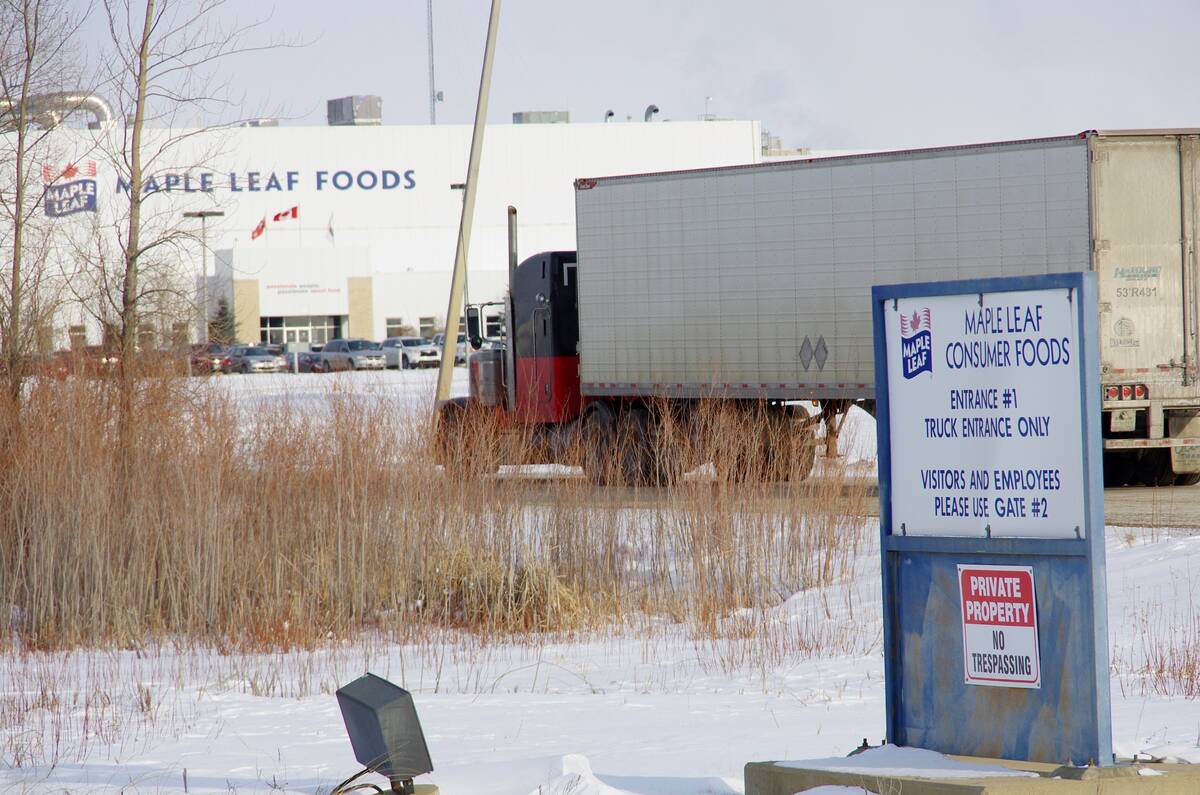Wearing a bright yellow sweatshirt proclaiming “I love raw milk,” California dairy farmer Mark McAfee travels North America selling the virtues of unpasteurized milk.
He told a recent Calgary audience that using unpasteurized milk is not for everyone nor is the sale of it legal in Canada. However, it is legal in his home state, where he sells his milk, cheese and butter to 40,000 customers in 300 stores, farmers’ markets and via the internet from his 300 cow dairy near Fresno.
The Jersey-Holstein cross cows on his Organic Pastures farm are kept on grass year round.
Read Also

Manitoba pork exports gain new market ground
Manitoba’s pork trade pivoted from China over the last five years, while Japan is remains the largest customer and South Korea and Mexico market footholds have grown
He claims his farm is unusual because many California dairies keep their cows in confinement, which he believes contributes to bacterial contamination.
Under California law, all milk must be tested for somatic cell counts and standard plate counts, which indicate the presence of bacteria and possible disease in the cow.
“Mother Nature keeps me in check. If I cheat, I’ll find a pathogen in my milk,” he said in an interview.
“If I start using antibiotics, I’ll get pathogens in my milk. You must keep your cows in a green grass pasture and you must treat her naturally and keep your grain down to less than five pounds per day.”
Following those rules and using modern storage technology should keep the milk safe, McAfee said.
For him, raw milk is part of a good nutrition plan. He believes the heating of milk during pasteurization destroys or diminishes essential nutrients and enzymes.
Pasteurization has been used for more than a century and protects farmers who may have inadvertently contaminated the milk and consumer who may not store it properly.
“It is liability protection for both sides,” McAfee said.
A paramedic for 16 years who was farming on the side, the 46-year-old had an epiphany in 1999 when he started dairying full time. He had been selling alfalfa to local organic dairies and decided to start an organic dairy from scratch, joining a local co-operative.
“We were in business for a few weeks and we had movie stars showing up at our doorstep saying, ‘we want your milk raw.’ ”
McAfee had grown up on a dairy and thought about what was done when he was a child.
“I had forgotten that I had grown up on raw milk myself.”
He has turned the family operation into a $6 million a year company with 40 employees. He has moved away from the day to day farm work and spends more time promoting whole food that has not been changed with processing.
He argues that modern consumers have become “bacteria phobic” and because they stay clear of any bacteria, they have probably suppressed their natural immune systems.
“The more diversity you have in your gut, the more protection you will have in the environment,” he said.
In the past people drank raw milk and ate more organ meat and fermented and unprocessed food. Their diets contained more omega 3 fatty acids, conjugated linoleic acids and more essential minerals and vitamins.
He said loss of these nutrients could be linked to the increase in obesity, colitis, arthritis, diabetes, asthma and osteoporosis.
People hope to be cured with drugs when a better diet may improve their health early on, McAfee added.
However, regulators such as Health Canada and groups such as Dairy Farmers of Canada are not proponents of unpastuerized milk.
Health Canada’s website said the sale of raw milk has been prohibited under the Food and Drug Regulations since 1991. Raw milk cheese is allowed for sale and considered safe because the manufacturing process and aging of the cheese help eliminate many pathogens found in raw milk.
Milk can become contaminated if a dairy cow has a mammary gland infection such as mastitis, in which the bacteria can be passed to the milk. Milk can also become contaminated by manure dust or by equipment used for milk collection and storage.
Various bacteria could appear in raw milk, including salmonella, E. coli and listeria, all linked to food-borne illness.
Therese Beaulieu of Dairy Farmers of Canada disagreed that pasteurization destroys nutrients.
“It might affect a bit of the vitamin content but by law vitamin A and D are added to any fluid milk sold in the stores,” she said.
“We support the regulations that are in place and we believe there is a reason pasteurization is in place and it should continue to be in place.”















